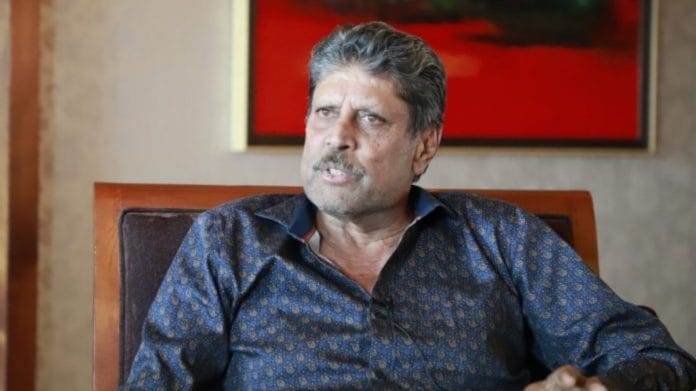Kolkata: The new normal in sport is not quite normal: Playing in front of empty galleries, no hugs and kisses, no exchanging of jerseys, no high-fives and chest bumps… Even a perfectly natural show of emotion will, in the present times, be deemed unnatural.
Such is the Covid-19 effect that the character of sport has altered most drastically. It is time to take fresh guard, respecting the many don’ts. Also time one got used to elbow taps as a way of celebration.
The virus has instilled fear too, with the practioners of contact sport most worried. From wrestlers to boxers, not to forget the exponents of martial arts. Actually, the way forward for all is mightily challenging.
Cricket has also been affected. Moving ahead, the bowlers need to look at life without being able to apply saliva on one side of the ball to facilitate swing.
Chaired by Anil Kumble, the Cricket Committee of the International Cricket Committee (ICC) has specifically recommended that the use of saliva be prohibited. Sweat is fine, but no saliva, which has been used to good advantage down the ages.
In taking such a significant step, Kumble and his colleagues were guided by the opinion of Dr Peter Harcourt, who chairs the ICC’s Medical Advisory Committee. The emphasis now is on “greater hygiene”.
As Kumble put it: “We are living through extraordinary times.” At this stage, no saliva is just a recommendation, but approval by the ICC’s Chief Executives’ Committee is a formality.
Clearly, it is to be seen how effective the new-ball bowlers would be when they are unable to use saliva. Most batsmen, one assumes, will be quietly celebrating.
Naturally, the use of any artificial substance as an alternative to shining the ball would be illegal according to the existing Laws of cricket. Yet, even an elder statesman like Ian Chappell suggested that ball-tampering in limited form may be permitted. “Bowlers require something to replace the traditional methods of shining the ball,” he argued.
A while ago, Chappell suggested that the International captains be asked to draw up a list of “natural substances” bowlers could find useful in swinging the ball.
Shane Warne, among the most gifted of spinners across generations, has suggested the ball be made heavier on one side to help it swing.
Also read: Fan cutouts, app for applause — Germany is ready for return of Bundesliga matches
Life has become more difficult for bowlers: Kapil Dev
“Cricket is still some months away from resuming, so it’s premature to dwell on alternatives to applying saliva on the ball. What’s certain is that life has become more difficult for the bowlers. Batsmen have always been the officers and bowlers the workers. The game is made for batsmen,” the iconic Kapil Dev, a World Cup-winning captain and one-time No.1 wicket-taker in Test cricket, told The Print.
“In any case, each one of us has some virus in our body and, over the years, cricketers may have transmitted that virus through saliva and sweat on the ball. Of course, COVID-19 is different,” Kapil added.
The ICC’s Cricket Committee is fine with applying sweat on the ball, but Kapil is not sure if the virus cannot be transmitted through sweat. “So little is known about COVID-19, that it’s perhaps not right to reach a definite conclusion,” he maintained.
Not surprisingly, Kapil rubbished talk of allowing some form of ball-tampering: “No way. If that happens, then all existing records will go and cricket would become a new ball game.”
Kapil wondered if social distancing will be maintained in the dressing room. “Is it that all cricketers are going to have individual cubicles? The way things are, no bat or glove can be picked up randomly, as has been done for generations. In the weeks ahead, one expects clarity on a host of issues.”
Game must be kept clean, says Sandhu
Balwinder Singh Sandhu, a hero of India’s World Cup win in 1983, concurred with Kapil.
“The game has to be kept clean, which means ball-tampering in any manner cannot be legitimised. Surely, Vaseline won’t be allowed. Ball-tampering has been going on, on the sly, and some who cheated even
became greats. Had Kapil indulged in it, his tally of Tests wickets would have been 1,000 and not 434,” Sandhu said.
Sandhu underlined the fact that “bowlers have to think more, but they’re creative by nature while batsmen are reactive,” so bowlers will attempt to come up with something to overcome the handicap of not applying saliva.
“As an option, the ball may be changed after 50 overs and not 80. By changing the ball early, fast bowlers would be discouraged from cheating.
However, spinners will then possibly go out of business in Test cricket,” Sandhu pointed out.
Kookaburra, by the way, is developing a “wax applicator” for the benefit of the bowlers. Is that an alternative to saliva? We have to wait and watch out for innovations.
Lokendra Pratap Sahi is a veteran sports journalist who has covered cricket across the globe for nearly four decades.
Also read: People prayed I didn’t get out, now I’m praying no one gets out: Sachin Tendulkar






